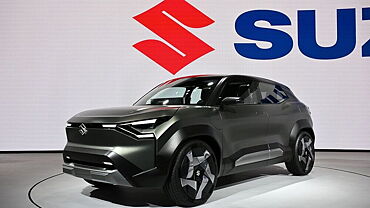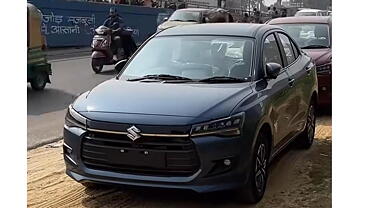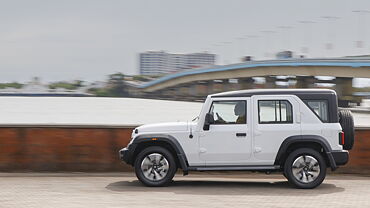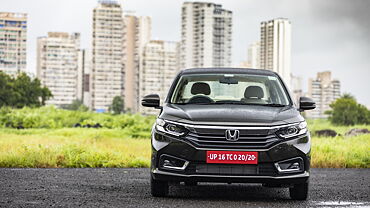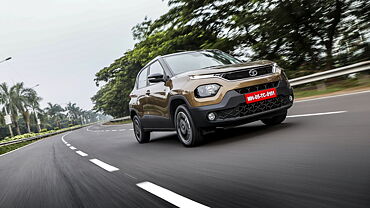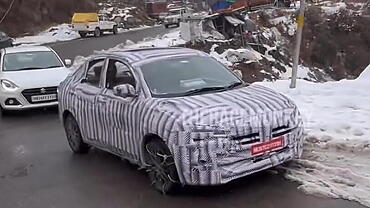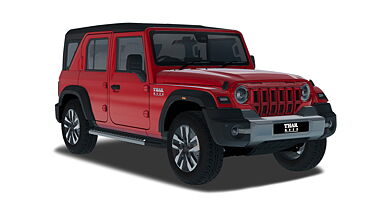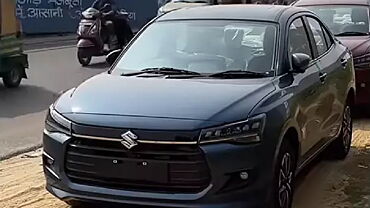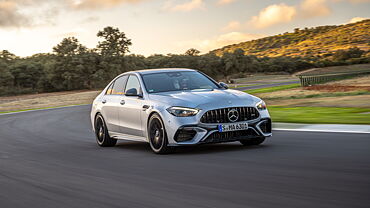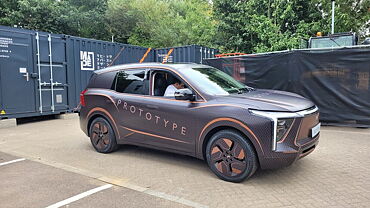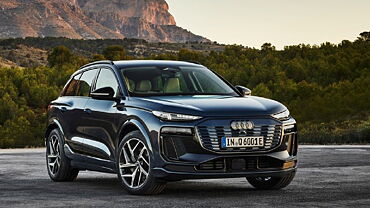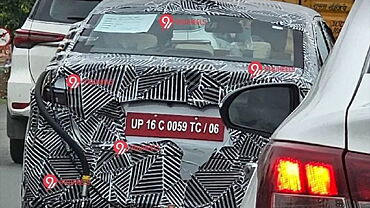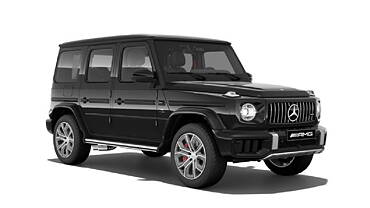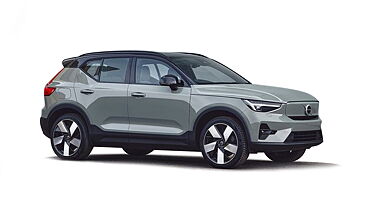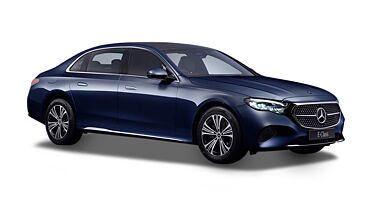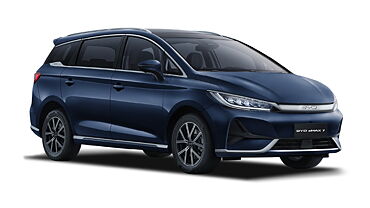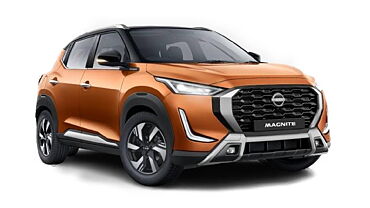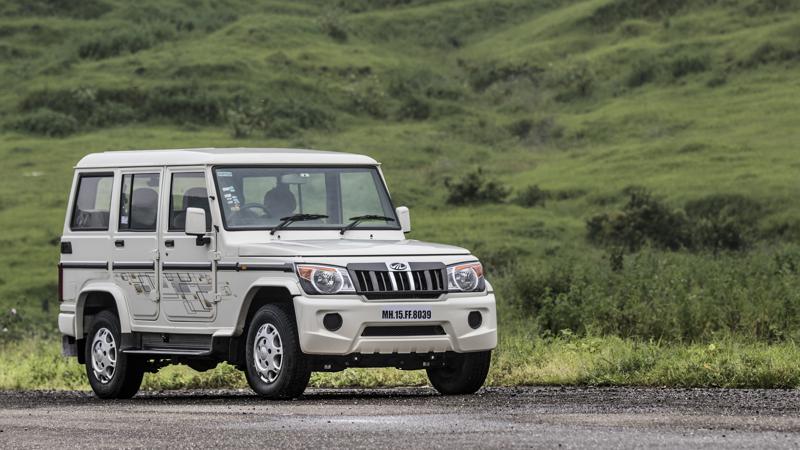
Opening
Mahindra stepped into the new millennium with two big bets – the Mahindra Bolero and the Mahindra Scorpio. The Indian car maker had a clear brief for these cars, keep them simple and make them affordable. The strategy has worked wonders with the Mahindra Bolero turning out to be the company’s bestseller for years together.
Mahindra has now tweaked their winning formula with the new Bolero Power Plus. It is essentially the same Bolero and now measures less than four metres, gets the new three-cylinder diesel engine and thanks to the small car tag and less duties, costs more than a lakh rupees less. So we drive the new Bolero Power Plus to find out if the shortened length and the smaller engine is too much of a compromise.
Appearance Exterior
The new Bolero Power Plus looks exactly the same as the existing car. From the side, you will find that the Bolero has undergone a tummy tuck and bum reduction surgery. The chunky bumpers have been pulled back to bring the length down from 4107mm to 3995mm for the same body shell.
The big square headlamps flanking the Jeep-style vertically slatted front grille continue to look exactly the same. The front bumper gets Scorpio-like creases to retain its aggression. There is a visible gap between the bumpers and the body line making it look like an aftermarket fitment. With the body-shell same as before, the Bolero retains its square lines and the G-Wagen-style sloping D-pillar. The decal on the side and the plastic moulding that runs through the length of the car makes it look a little bit premium.
The tailgate mounted spare wheel with the ‘Bolero’ engraved cover-plate helps with the macho image the Bolero commands. Except for the bumper, the design of the rear remains exactly the same with those out of place looking rectangular tail lamps.
Appearance Interior
Before commenting on the interior, we have to acknowledge the fact that a big chunk of the Bolero market comes from rural or semi-urban markets where price and utility are the most important criteria.
The Bolero Power Plus is available in three trims – SLE, SLX and the top-spec ZLX that we have tested. The interior is basic and is set in beige and brown faux wooden appliques. The dashboard is straight out of the 90s with the rectangular AC vents and a 1-DIN music system. It gets manual air conditioning with a defogger that doesn’t seem to work. The music system looks like an aftermarket fitment and gets USB input along with Bluetooth telephony. The dated analogue instrument cluster has been replaced by the new all-digital console, something that should be a hit amongst Bolero buyers. It is quite comprehensive and reads out speed, engine revs and fuel gauge amongst other things. The centrally mounted multi-function display on the dash reads distance to empty and average fuel consumption along with date and time. My only complaint with the new console is that I have to sit askew on the driver seat with my one hand on the window sill to have a full view of the cluster.
Speaking about the seating, the front seats, like the jump seats in the back, are chair-like. There is hardly any lateral support for the front seats, but the seat seemed to be of appropriate size to be comfortable for people of most sizes. The driver posture has to be upright to be able to manage the near flat steering wheel. In spite of the limited legroom for the second row the shoulder room is enough for three to seat comfortably and gets a pull-out rear armrest. There are hardly any storage spaces apart from the small rectangular door pockets and the two 1-litre bottle holders in the front row. The SLX and ZLX get all-four power windows but with no switches in the back though.
Surprisingly, the NVH insulation of the Bolero is quite good. The road noise percolation into the cabin has been restricted along with the engine noise and is excellent for that segment of cars.
Performance Drive
The Bolero Power Plus gets the three-cylinder 1.5-litre turbocharged diesel engine earlier seen in the TUV300. The D70 MHawk engine develops 70bhp of power at 3600rpm and 195Nm of torque from 1400rpm. In spite of downsizing, it generates 7bhp more power for the same torque output. The car pulls steadily through the gears with the ratios stacked closely for the lower gears.
In slow moving traffic, the Bolero engine feels peppy and doesn’t get bogged down even at 20kmph in third gear which allows you to drive stress free. The engine revs cleanly to about 3000rpm beyond which it is better to shift up. Thanks to the torque, it doesn’t need frequent downshifts on the highway unless you drop the revs really low. For something like the Bolero, the five-speed gearbox is smooth with throws within reach and the clutch is quite light as well.
It is the dynamics of the Bolero where the almost two-decade-old chassis shows its age. The suspension is soft and offers good ride at slow speeds but is skittish over sharp bumps. The high speed ride is bouncy but should improve when the Bolero is loaded. Also, there is considerable body roll to deal with around corners. The steering is slow and the feedback is almost non-existent just like the brakes which can best be termed as soggy. But then, the expecting the Bolero to be a driver’s car would be akin to expecting Yo Yo Honey Singh to compose melodies.
Tech Specs
| Make | Mahindra |
| Model | Bolero Power Plus |
| Fuel | Diesel |
| Variant | ZLX |
| Engine Capacity | 1.5-litre |
| Max. Power (bhp@rpm) | 70bhp @ 3600rpm |
| Max. torque (Nm@rpm) | 195Nm @ 1400 |
| Gears | Five |
| Length mm | 3995 |
| Width mm | 1745 |
| Height mm | 1880 |
| Wheelbase mm | 2680 |
| Fuel Capacity (in litres) | 60 |
| Tyre size | 215/75/R15 |
Features
| Features | |
| New Bumpers | Yes |
| Digital instrument console | Yes |
| Music sytem with Bluetooth | Yes |
| 7bhp more power | Yes |
| Better NVH | Yes |
| New interior | Yes |
Competition All Specs
| Specifications | Mahindra Bolero Power Plus |
Tata Sumo Gold |
| Variant | ZLX | GX |
| Fuel | Diesel | Diesel |
| Engine Capacity | 1.5-litre | 3.0-litre |
| Max. Power (bhp@rpm) | 70bhp @ 3600rpm | 84 @ 3000 |
| Max. torque (Nm@rpm) | 195Nm @ 1400 | 250 @ 1000 |
| Gears | Five | Five |
| Length mm | 3995 | 4258 |
| Width mm | 1745 | 1700 |
| Height mm | 1880 | 1925 |
| Wheelbase mm | 2680 | 2425 |
| Fuel Capacity (in litres) | 60 | 65 |
| Tyre size | 215/75/R15 | 215/75/R15 |
Conclusion
All the changes that have been done in the Bolero Power Plus makes it look comparatively modern, but has a long way to Go to be called contemporary. The new engine and reworked interiors have improved the feel and ergonomics but the age old dynamics cannot be ignored. But then, the lowered price tag makes the Bolero rise up the value-for-money ladder. The Bolero Power Plus is cheaper by Rs 1.39 lakh for the SLE, Rs 1.32 lakh for the SLX and Rs 1.24 lakh for the ZLX trims ex-showroom, Delhi. The only competition is the Tata Sumo Gold, which is almost a lakh more expensive for the top-spec trim. Yes, it is slightly bigger and powerful but the Bolero wins on price point and efficiency, the most important criteria for this segment.



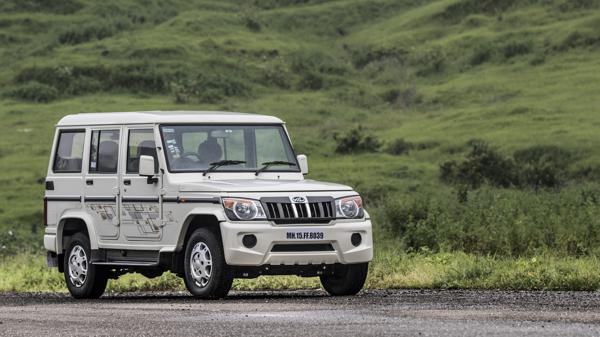
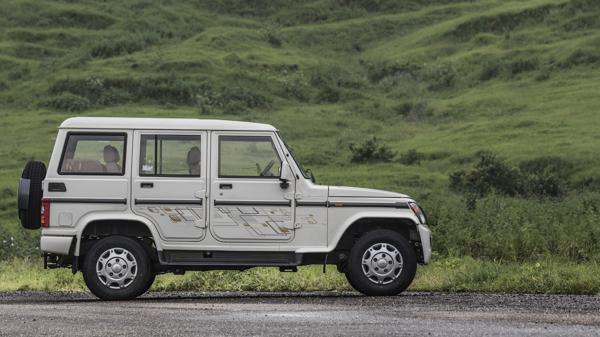
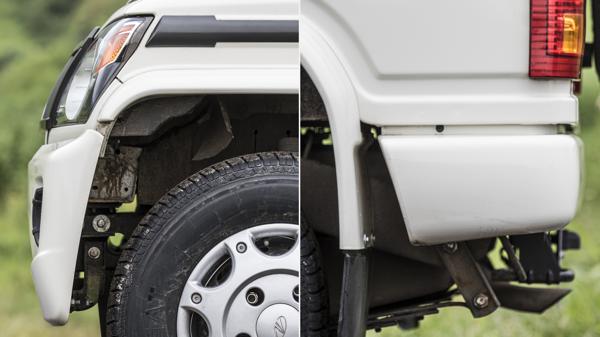
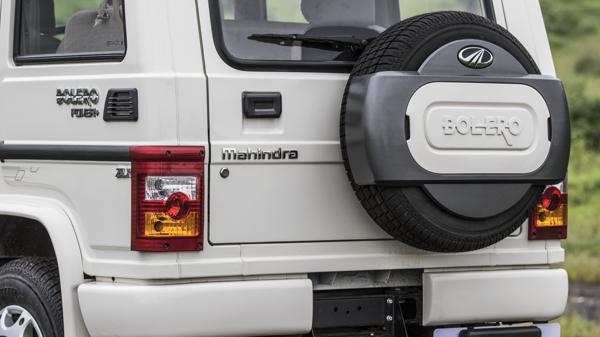
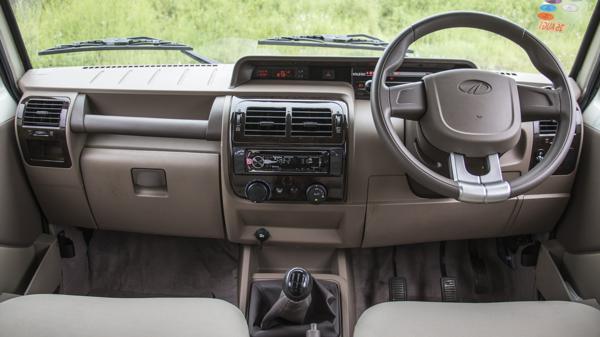
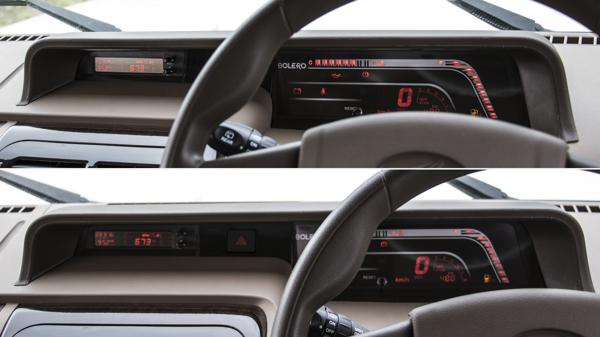
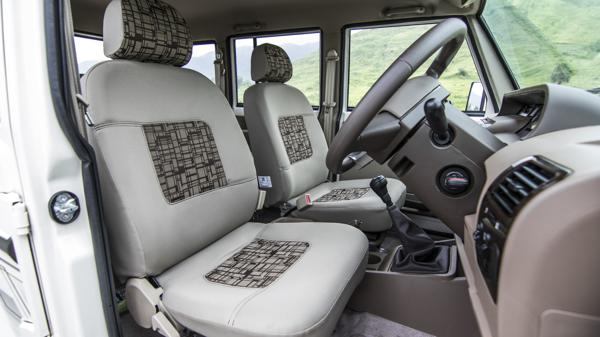
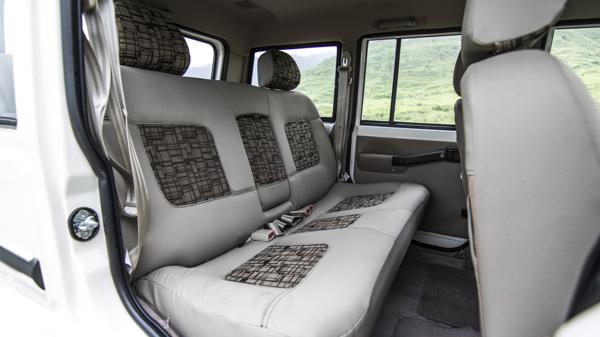
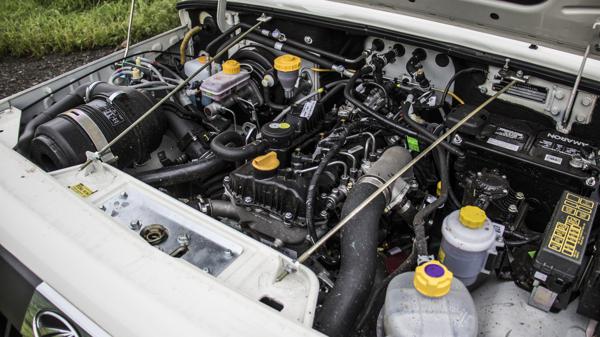
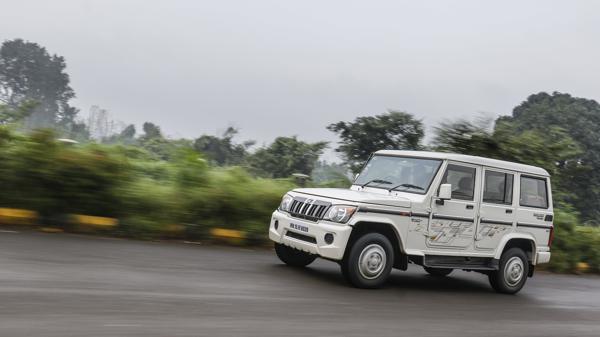
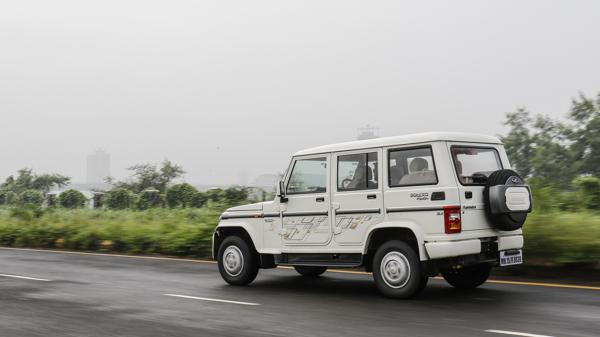
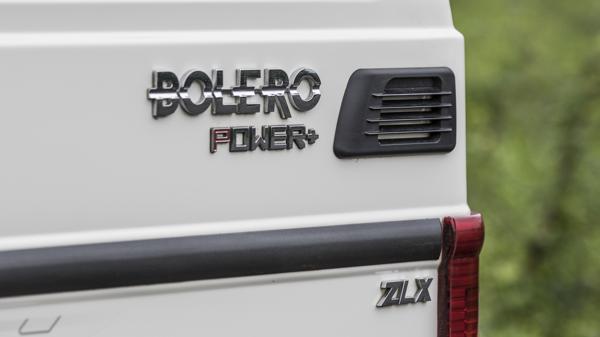
![Mahindra Bolero [2020-2022] Mahindra Bolero [2020-2022]](https://imgd-ct.aeplcdn.com/160x89/n/cw/ec/45933/mahindra-bolero-right-front-three-quarter1.jpeg?q=80)
